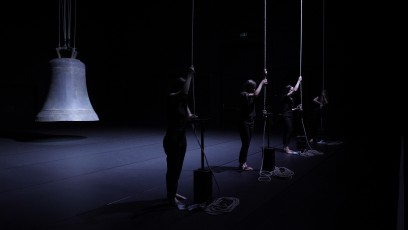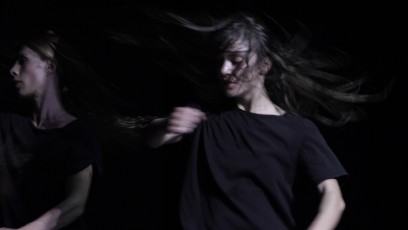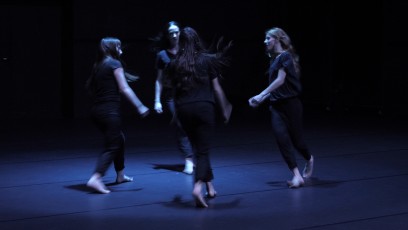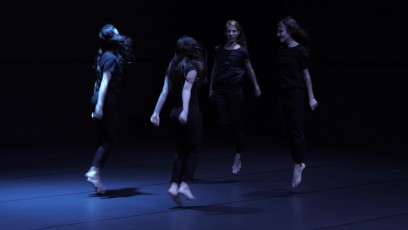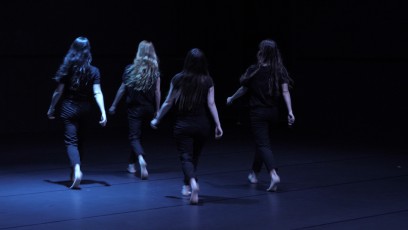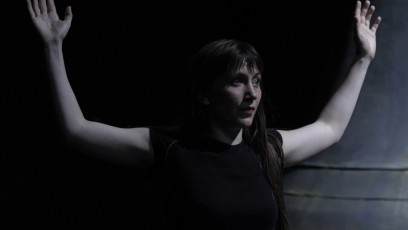Lignes de conduite (Lines of conduct)
Original music by
Scenography
Coproductions
Création 2018
Since ever, every culture knew to invent its own trance rituals, in order to free the captive souls of a community. No matter the fictional system of the ritual, in any case it is a matter of crossing: a state of rapture, or the possibility of getting out of oneself, during a limited time.
For her second play, Maud Blandel chooses to investigate one of these rituals: tarantism. Popular healing rite in the South of Italy, mixing christianity, magic practices, and musical catharsis, it not only attests to the warding off forms established by a society, but it gives as well an account of a whole section of the evolution of cultural balances of power. At first from telluric origin, and then religious one, tarantism is today exploited by a ferocious tourist-festive industry.
Formal play for four female dancers, « Lignes de conduite » chooses to recount the evolution of the phenomenon of possession, with the purpose of questioning poetically what may have produced the spectacularization (turning-into-a-show) of such practices.
